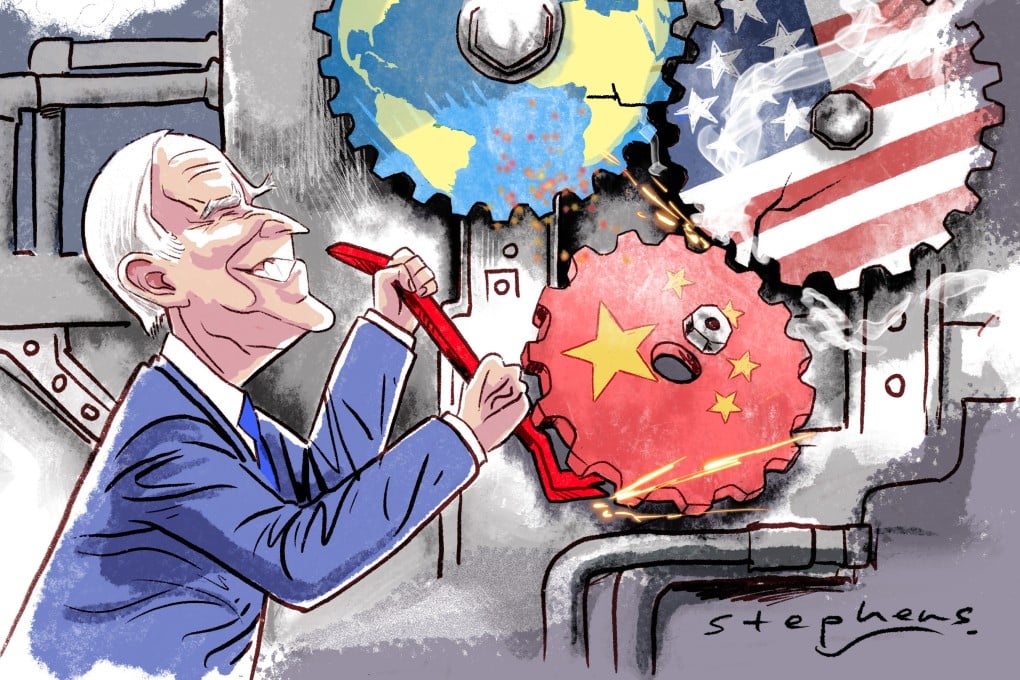Advertisement
Opinion | For all its protestations, the US is set on decoupling from China – an act that will cause global economic harm
- Faced with US tariffs, investment curbs and export bans, China has simply opened its economy wider, working to protect itself and the stability of global supply chains
- But if the US continues down this path, it will be a supreme act of self-harm and a global disaster
Reading Time:4 minutes
Why you can trust SCMP
38

I remember watching a short video about two men balanced at opposite ends of a see-saw that was somehow on the high seas. As one man with a sword moved towards the other to kill him, the see-saw tilted, throwing both men off balance – and into the sea. It was deadly foolish. Washington’s actions to effectively decouple economically from China fall into the same category.
Advertisement
Contrary to its professed disinterest in decoupling, Washington has pushed ahead with it in a bid to isolate and contain China.
It slapped tariffs on up to US$360 billion worth of Chinese imports, is roping in allies and “like-minded” countries to form exclusive trading blocs in key sectors, has pushed businesses to shift manufacturing away from China and blacklisted over 1,000 Chinese companies and institutions.
It has curbed Chinese investment in the US, banned imports of Chinese technology products such as solar panel components and 5G-related equipment, and prohibited hi-tech exports to China, including cutting-edge microchips and the gear to make them. There have also been Congress discussions on stripping China of its permanent normal trading status.
In response, China has opened its economy, embracing foreign businesses from around the world and making more sectors available to foreign investors. It is turning Hainan into the world’s largest free-trade port.
Advertisement
To promote imports, it has the world’s first government-sponsored national import expo, in Shanghai. And it is in active talks to join the Comprehensive and Progressive Agreement for Trans-Pacific Partnership, after winning membership to the Regional Comprehensive Economic Partnership, the world’s largest trading bloc.

Advertisement
